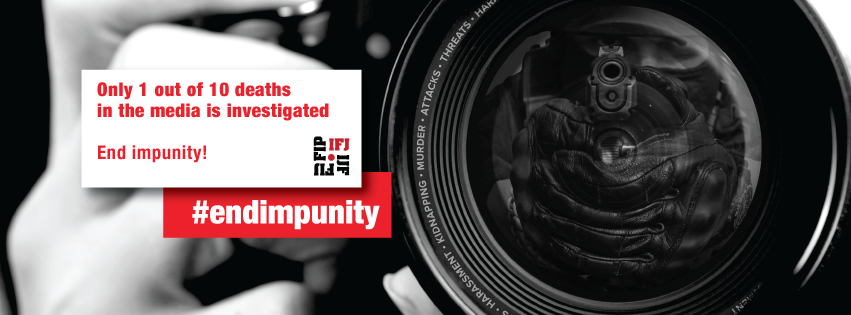Journalists targeted as impunity reigns

It was Peter Greste who observed: “Journalists are no longer on the front lines; we are the front lines.
Rarely have so many of us been imprisoned, beaten up, intimidated or murdered in the course of our duties.”
Increasingly, governments are failing to do anything to stop these attacks on press freedom. Impunity when it comes to attacks on journalists is spreading across the world.
In the Philippines, the global epicentre of the impunity crisis, more than 170 journalists have been murdered since the overthrow of the Marcos regime in 1986. And yet, there has scarcely been an investigation let alone an arrest or successful prosecution in the overwhelming majority of those murders, and usually even if the gunmen are caught, the powerful figure who ordered the killing has literally got away with murder.
The Philippines is also the site of the greatest atrocity inflicted on the profession: the November 23, 2009 Ampatuan Massacre in which 52 people were killed, 38 of them journalists. And while a court case is still slowing proceeding, according to the Philippines National Police 77 massacre suspects are still at large, including five members of its own police force and 62 members of the Philippines’ armed forces and government-backed militia.
The International Federation of Journalists says last year 118 journalists and media workers were killed in targeted attacks or crossfire. More than 700 journalists have been killed in the past decade but in nine out of 10 cases, these deaths are never investigated.
Australia is not immune to the impunity crisis. The Australian Federal Police announced a year ago that it was closing its five-year investigation into the deaths of the Balibo Five in East Timor in 1975. The AFP admitted that during its investigation it had not bothered to make any contact with anyone in Indonesia, not even its counterparts in the Indonesian National Police. The AFP has cited a lack of evidence to investigate the shooting of journalist Roger East in Dili less than two months after the murders in Balibo.
ABC cameraman Paul Moran was killed in a suicide bombing in northern Iraq in 2003. According to investigations in the US the man most likely to have ordered the attack is a Norwegian-based cleric Mullah Krekar. The AFP has said that, despite the US evidence, there is insufficient information to justify an investigation into Krekar’s involvement.
The UN has designated today, November 2, as the International Day to End Impunity for Crimes against Journalists. The day marks the beginning of a campaign by freedom of expression groups to fight back against the spread of impunity and to demand action from governments. The campaign will culminate on November 23, the sixth anniversary of the Ampatuan Massacre.
This year also marks 40 years since the murder of our colleagues in Balibo and Dili. MEAA encourages its members to work with us in the global campaign for justice. You can follow the campaigns here: the UNESCO campaign http://meaa.io/1M0okY1; the International Freed of Expression Exchange campaign http://meaa.io/1O95xj8; the IFJ campaign http://meaa.io/1KJ5rH7. Please support the No Impunity campaign by using the hashtag #NoImpunity